




LIBERTY DARR STAFF WRITER
A new draft report from the Department of Public Safety suggests Vermont needs a massive overhaul in the way it handles emergency dispatch services, but the road to get there could be long and winding.
The report, released last month, was the work of the Public Safety Communications Task Force, established by lawmakers in June 2023 to oversee and establish a reliable, secure and interoperable statewide public safety communications system.
The report found that Vermont, a state of just over 600,000 people, could benefit from reducing the 37 dispatch centers counties down to just six — Hartford, Lamoille County, Shelburne, St. Albans, Westminster and Williston. Those ones already operate as public safety answering points, which handle 911 calls.
In the most aggressive scenario, this could mean the closure of several dispatch centers across the state.
“A consistent message heard across all stakeholder engagement activities was widespread dissatisfaction with numerous components of the existing public safety communications system and a strong desire for improvements,” reads the report.
The report found several inefficiencies with Vermont’s current statewide dispatching system. For example, 33 of the 37 communica-

tions centers have operational and staffing deficiencies, falling below the standard of two telecommunicators on duty.
And, according to the report, when multiple public safety answering point’s operate within close proximity, that poses a higher risk of call transfers occurring regularly due to misrouted 911 calls or the need to transfer the call to one or more dispatch centers for the appropriate law enforcement, fire, or emergency medical service response.
The topic of regionalization has arguably been a perennial question in Vermont and a conversation that James Mack, the communications supervisor at the Shelburne Police Department, has been a part of for the last 35 years. He was also a member of the task force that compiled the report, although none of the information was new to him.
Aside from technical inefficiencies, Vermont’s tradition of hyper-local control poses a unique conundrum when it comes to regionalization: who is paying and who is in control?
“The challenge, therefore, is to encourage agencies to set aside political considerations and focus on the potential benefits,” reads the report. “By shifting the focus to the collective gains, agencies can work together to achieve regionalization that enhances the effectiveness and efficiency of emergency
See DISPATCH on page 13

LAUREN READ CORRESPONDENT
When Catherine Gilwee stepped on the court in the first round of the women’s NCAA Tournament on March 22, the green and gold she was wearing didn’t just represent her school — it also represented her home state. “I just love that I’m from Vermont and I love that I get to stay close to home and play for a school that I love in a state that I love,”
See GILWEE on page 10

BRIANA BRADY STAFF WRITER
Michaela Ryan wants a few things for her micro-dairy, New Village Farm, by Harbor Road in Shelburne. She wants a place where she can wash the glass bottles that get returned to her to fill with milk from her four cows. She wants to build a kitchen so she can do some cooking lessons with the children who come for her educational programming and potentially sell some items to add value to the farm. Lastly, she wants bathrooms, so the kids don’t have to use port-a-potties in the middle of winter anymore.
While these aspirations are understandable, New Village Farm is not connected to Shelburne’s sewer system, and connecting to it, especially for an agricultural operation, can be complicated.
Last week, Ryan went before the Shelburne Selectboard to ask if that would be possible for the farm, which is surrounded by properties connected to the sewer system.
“I was here 12 years ago, and I kind of got laughed out of the room,” she said.
Agricultural waste is often considered high strength, which necessitates specific regulation around treatment. Generally, this does not affect town systems because agricultural operations often exist outside the boundaries of town sewers and rely on septic systems for waste. New Village, which at 99 acres is much smaller than many farms, is adjacent to the system and already has a manhole on the property.
Recently, the selectboard faced controversy over its decision to extend the sewer system as part of a pre-development agreement for a 375-unit housing project on land adjacent to the system. Pushback from residents questioned whether, acting as the sewer commission, the board had the right to extend to the district. After more than one review with a lawyer, the town decided it was within the board’s power, and they moved to extend the district in February.
One of the issues brought up by the board during Ryan’s request is that the sewer infrastructure that New Village would connect to is private, owned by Shelburne Farms and The Arbors, which would have to agree to the connection as part of the permitting process.
The board also tried to ascertain the kind of waste the farm might be putting into the sewer system. The farm does not make cheese or pasteurize milk — all its milk is raw — but would be using water and sewer to wash laundry, clean its glass milk bottles and sterilize its equipment. Ryan said she would not be putting any whey product into the system because it’s too useful as a farming product and feed for animals.
New Village Farm is an unusual case. Not only is it an especially small farm located in a conservation zone, but its main focus is on providing education. Ryan said the farm has 20 students who give up a day of traditional schooling to come to the farm. They also have
See NEW VILLAGE FARM on page 16
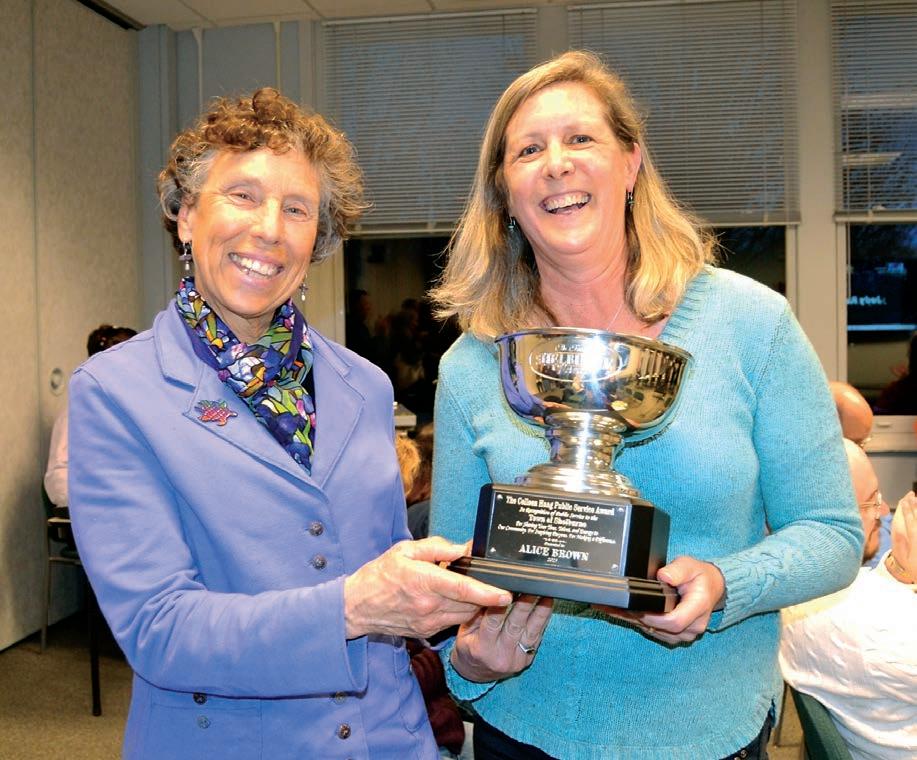
BRIANA BRADY STAFF WRITER
Every school day, Alice Brown greets every child that gets dropped off at the School Street entrance to Shelburne Community School. She said she might not quite know everyone’s name — it’s probably
about 150 kids — but she tries.
This is not an official part of her job. It’s not a duty like patrolling the lunchroom or making sure kids make it on the bus at the end of the day. She just does it.
“I’m there from 7:25 to eight o’clock every day. I even had to make up sub plans because I
wasn’t going to be here one day last month,” Brown said. Brown is the school’s mentoring coordinator for Connecting Youth. She’s also a Pierson Library Trustee, an election volunteer and
See AWARD on page 4


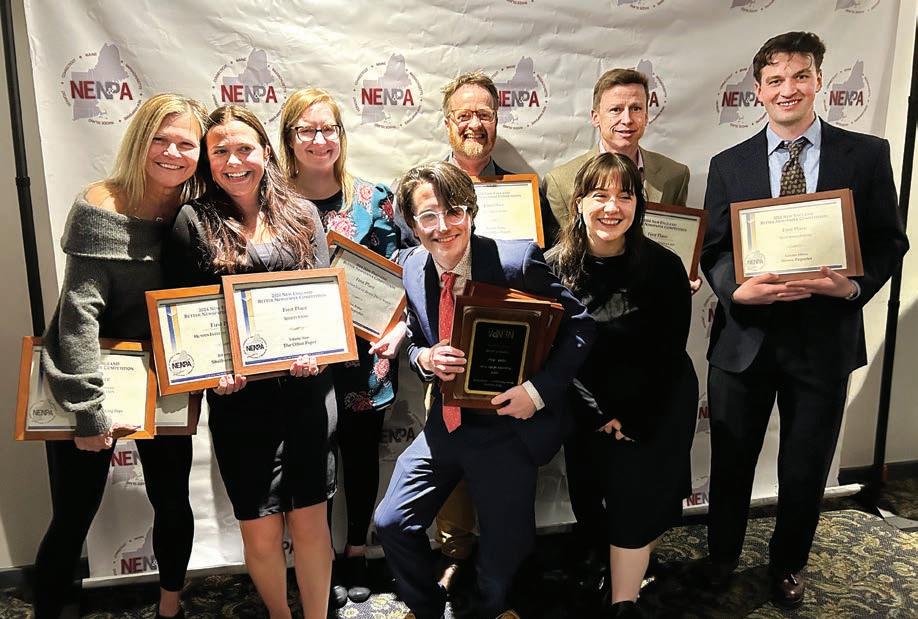





The Vermont Community Newspaper Group took home 35 reporting, design and photographer awards — including 15 first-place finishes — at the New England Better Newspaper Competition.
The accolades included a nod to staff writer Aaron Calvin, who was named the 2024 New England reporter of the year.
The awards ceremony, put on by the New England Newspaper and Press Association, was held Saturday night in Portland, Maine, and capped off of the 2025 New England Newspaper Convention.
NENPA represents more than 450 news organizations throughout New England and typically receives thousands of entries to its Better Newspaper Competition. The 2024 awards competition included work published from August 2023 through July 2024.
The Vermont Community Newspaper Group publishes five community weeklies — the Stowe Reporter, News & Citizen, The Other Paper of South Burlington, The Shelburne News and The Citizen of Charlotte and Hinesburg. It also publishes the award-winning Stowe Guide & Magazine, as well as an annual wedding magazine and special themed newspaper supplements.
Reporter of the year Aaron Calvin, 33, started with the company in April 2021, and primarily covers Lamoille County and Stowe for the News & Citizen and Stowe Reporter, while writing features for the Guide. He previ-
ously worked as a journalist in Iowa before moving to Vermont four years ago.
The Cambridge resident has made a name for himself juggling beat reporting while nabbing major scoops that have been picked up by statewide news agencies and bringing state and national topics to the local level.
Calvin’s haul this year included four first-place awards. He won for two Stowe Reporter stories, both in the Business/Economics Reporting categories — “As climate changes: Making snow key to resorts,” Jan. 11, 2024; and “Resorts withdraw connector lift proposal,” Oct. 3, 2023.
And he had two first-place Stowe Guide & Magazine pieces — “Notched,” about the history of the Smugglers’ Notch section of Route 108 in the History Reporting category; and “It’s Miller Time,” about the late photographer Peter Miller, in the Obituaries category.
Reporter Liberty Darr nabbed two first-place awards, one in the Sports Story category for The Other Paper (“Tell-tale heart: Pickleball racket in South Burlington prompts resident petition,” June 27, 2024); and one in the Human Interest Feature Story category for the Shelburne News (“Other side of the tracks: Mailles run last family-owned dairy in Shelburne,” Feb. 22, 2024).
Tommy Gardner won a firstplace Human Interest Feature Story award for his News & Citizen story about last year’s total
solar eclipse (“Solar eclipse wows northern Vermont,” April 11, 2024).
Rounding out the first-place newsroom award-winners was photographer Gordon Miller, who won for his Stowe Reporter photograph of first responders rescuing a man from rising flood waters, in the Spot News Photo category.
The company also won big in the design and production categories.
Kristen Braley had three first place finishes for ad design: “Most Creative Use of Small Print Space” for Hannon Home Center and “Real Estate Display Ad” for Red Barn Realty, both for the Stowe Reporter; and “Best Health Ad” for Dorset Street Dermatology, for The Other Paper.
Katerina Werth had the top “Local Display Ad, Color,” for her work in the Stowe Reporter on advertisement about Stowe’s short-term rental ordinance, a hot-button issue for much of the past year and a half.
Werth shared a first-place nod with Greg Popa in the “Pure Advertising Niche Publication” category for the Stowe/Green Mountain Weddings magazine.
And the design team collective took home a first-place prize in the Contests category, for its work in the “4393 Readers’ Choice Awards.”
The Vermont Community





























Shelburne Police Blotter: March 16-22
Total reported incidents: 66
Arrests: 1
Medical emergencies: 25
Mental health incidents: 2
Suspicious incidents: 6
Directed patrols: 18
Citizen assists: 6
Motor vehicle complaints: 4
Theft: 1
Fraud: 1
Alarms: 8
Pending investigations: 2
911 Hang-up calls: 2
March 23 at 11:46 p.m., police assisted in mediating a domestic dispute on Nashville Road.
March 23 at 6:02 p.m., a suspicious person on Longmeadow Drive was transported to the hospital.
March 24 at 2:59 p.m., a caller reported a vehicle passing a school bus while the red lights were activated on Shelburne Road. The vehicle driver was contacted and issued a warning for passing a school bus.
March 25 at 4:49 p.m., a caller reported a fraud complaint in the area of the Shopping Park. A fraud report was taken, and
the case is pending further investigation.
March 26 at 10:41 a.m., a caller reported someone was illegally dumping trash on Autumn Hill Lane. A littering complaint was made, and the case is pending further investigation.
March 28 at 10:34 a.m., officers escorted an unruly passenger off a GMT bus.
March 28 at 3:51 p.m., a 911 caller reported a male was refusing to leave her room at the T-Bird Motel. Todd Ward, age 53, from South Burlington, was issued a citation for violation of an abuse prevention order and was released.
March 28 at 8:17 p.m., a caller reported her camper unit on Bishop Road was stolen. A theft report was taken, and the car was entered into National Crime Information Center as stolen.
Note: Charges filed by police are subject to review by the Chittenden County State’s Attorney office and can be amended or dropped.
Serving the community of Shelburne A publication of Vermont Community Newspaper Group LLC shelburnenews.com
Advertising Wendy Ewing wendy@shelburnenews.com (802) 238-4980
Advertising Director Judy Kearns judy@otherpapersbvt.com (802) 734-2928
Editor Tommy Gardner tommy@stowereporter.com (802) 253-2101 x25
Staff Writers
Aaron Calvin
Liberty Darr
Patrick Bilow Briana Brady
Production/Design
Stephanie Manning
stephanie@shelburnenews.com
Kristen Braley kristen@stowereporter.com
General Manager Katerina Werth katerina@stowereporter.com
Billing inquiries Leslie Lafountain leslie@stowereporter.com (802) 253-2101
Advertising submission deadline: Friday at 5 p.m. advertising@shelburnenews.com classifieds@shelburnenews.com
Editorial submission deadline: Friday at 12 p.m. news@shelburnenews.com
Calendar submission deadline: Friday at 12 p.m. news@shelburnenews.com
Contact: PO Box 489 Stowe, VT 05672 (802) 253-2101
The Shelburne News is published weekly and mailed free to residents and businesses in Shelburne and rack distributed at select high traffic locations. The Vermont Community Newspaper Group LLC assumes no responsibility for typographical errors in advertisements and reserves the right to refuse advertising and editorial copy.
continued from page 2
sits on the Shelburne Forward Together bike and pedestrian task force. Since moving to Shelburne in 1997, there are also many other ways Brown has gotten involved, from the parent teacher organization to a youth ski club.
She is also this year’s recipient of Shelburne’s Colleen Haag award, which since 2016 has been awarded in recognition of a resident’s public service and community spirit and is named in honor of its first recipient and her 35 years as Shelburne’s town clerk. Last year’s recipient, Pam Brangan, presented Brown with her award at last week’s selectboard meeting.
Brown almost vibrates with energy. She describes herself as an extrovert and gets her energy from interacting with the hundreds of students, teachers and mentors she sees every day. She said that expands beyond school as well, to reaching out to neighbors and involving herself in the community around her, even if that just means going out every once in a while to root out invasive garlic mustard in the woods behind her house and up at Shelburne Bay Park.
“You create the community you want to live in,” Brown said. About 15 years ago, she began organizing her neighborhood, but not with the goal of making a homeowners’ association or a neighborhood watch.
“I thought everybody should know their neighbors, and I would
write down everybody’s names as I got to know them on little scraps of paper,” Brown said. She used that information to put together a directory, first for her own street, and then the entire neighborhood. It had everyone’s name, their address, phone numbers, kids’ names, pets’ names. She still updates the directory, knocking on doors to make sure everyone can identify who to call if a dog gets lose. Now, they also have a picnic in Davis Park every year and an annual meeting.
According to Brown, doing this kind of intentional community building is self-serving, at least in the sense that it makes her feel good to do it. She was surprised to find herself chosen from the 14 people nominated this year.
“It’s sort of like, are you sure that I should be getting this award? Because these people are amazing. These people have done so much,” she said of past winners and nominees.
But for those who nominated and selected Brown, there’s no doubt that she deserves the recognition.
In her nomination form, which was put together by the current Shelburne Community School PTO, along with her many official positions and details of her lasting impact, the authors included a section entitled “Quiet Contributions,” which lists activities that paint a portrait of someone who, as in becoming the unofficial school greeter, just does things
that need doing.
The list included picking up trash as she runs along Harbor Road, cooking large meals for the cross-country team and pulling weeds by the school entrance at the beginning of every year.
The nomination is also chockfull of testimonials.
“Over the years, she has shelved thousands of books. She would also spend her own time reading the books we offered so that when she was in the library, she could provide meaningful recommendations,” school librarian Fiona Kovacik said of Brown’s 10 years volunteering in the school library in addition to her paid position as the mentor coordinator.
The timing of this award coincides with Brown’s retirement from her job at the school in June.
“Her shoes are going to be too big to fill by any one person,” Brett Cluff, one of the principals at Shelburne Community School, wrote in the nomination.
As she walks down the hallway, Brown waves to different students and tracks down one she needs to talk to about a mentoring schedule change. Turning down another hallway, she greets a couple of little ones putting on their jackets outside her room, telling them how nice it is to see them again.
“That’s what I’m going to miss when I retire,” she said. “All these people that I get to interact with every day.”
Enjoy a heartwarming Easter brunch with live music, great food, and cherished moments with family and friends in our beautiful atrium.

Be
SUNDAY, APRIL 20
TWO SEATINGS ( 10:30-11:00 AM & 1:30-2:00 PM ) ADULTS $65 | AGES 5-12 $28 | UNDER 5 FREE Prices do not include taxes and gratuity.

and Seasonal Desserts
After seeing some of you at our town meetings, I wanted to give everyone an update on the House of Representatives’ progress thus far.
I sit on the House Committee on Corrections and Institutions. We are presently finalizing the Capital Bill and Capital Budget, which we will be reporting to the House in the coming days. This bill finances our Department of Corrections, Vermont’s Building & General Services department and a variety of other programs throughout the state.

targeted and less inflationary. The House Committee on Ways and Means is reviewing the numbers used in the proposal by the administration for moving to a “foundation formula.”
This would radically change how the state funds public education, providing school districts with a per-pupil base amount that is adjusted for student needs that require extra instruction or facilities. The framework of a foundation formula has some advantages over our current system.
However, the details of the design of the foundation formula are critical. If we get them wrong, some schools could end up with too little funding and be forced to make more cuts to important programs, while others could have more funding than they can put to use efficiently.
I reported my first bill on the House floor last week. It was H.219, a bill that expands Kids-A-Part, an incarcerated family support program, beyond the women’s facility and into our men’s facilities.
The framework of a foundation formula has some advantages over our current system. However, the details are critical.
This program works to strengthen the connection between children and their incarcerated parents. It has been successfully operated by Lund Vermont for over 20 years. The bill received an almost unanimously favorable vote from the House. It now heads to the Senate for further debate.
On a more pressing issue, a bill that came from the Committee on Housing and General this past week is H.479. The bill supports many housing programs, provides new investments in infrastructure, calls for several housing-related legislative studies and seeks to reduce municipal permit appeals for housing projects. It is another example of bipartisan efforts to help address our ongoing housing crisis. The bill has been referred to the Committee on Appropriations for their review.
As for education, progress is being made. The governor recognizes the need for a new funding formula, one that is more
Also this past week, the House Committee on Health Care was busy preparing a number of bills. H.80, H.237, H.259 and H.482 were presented and passed with overwhelming support. These four bills will greatly strengthen oversight and accountability of our hospital budgeting process, bring Vermont improved access to psychologists, create safer workplaces for hospital workers and put in place financial guardrails for our insurance providers by allowing regulatory intervention to stabilize them in a fiscal emergency.
These are the building blocks of stabilizing a system that is struggling, and these are strong, impactful bills that reach across our system of care.
Heading into the second half of the session, I am optimistic about our ability to do what’s right for Vermont. I know my colleagues in both the House and Senate are hard at work on many other bills that will address the challenges being faced in education, healthcare, and housing that all Vermonters have asked us to make.
As always, feel free to reach out. The best way is at: shawnforhouserep@gmail. com.
Rep. Shawn Sweeney, a Democrat, represents voters in St. George and Shelburne in the Chittenden 5-2 district.





Guest Perspective
Jennifer Morrison
Last fall, Vermonters delivered a clear message. They want meaningful change on the issues impacting their daily lives — property taxes, education, housing, and affordability.
One common concern unites all these challenges: the need to ensure the safety of our communities, downtowns, neighborhoods, and personal property.
I have spent nearly 35 years living and working in Vermont, not only as your commissioner of Public Safety but also as a mother, coach, neighbor, police officer and policy advisor. My commitment to vibrant, attractive and safe communities runs deep. Yet, many of our communities face significant public health and safety challenges that threaten our shared way of life.
When I reflect on what I’m hearing and seeing across the state, I think about a pendulum that has swung too far in one direction and needs to be rebalanced. On one end is an overly punitive system that can overlook the potential for rehabilitation and the rights of individuals. On the other end is an approach so lenient that repeat offenders aren’t held accountable for the harm they inflict on our communities. Today, our policies have drifted too far toward leniency, and the damage — measured in undermined trust, diminished
social cohesion, and degraded public spaces — can no longer be ignored.
Gov. Scott’s proposed omnibus public safety bill takes a commonsense, measured approach to restoring balance. It recognizes the close ties between public health and public safety and tackles substance use, mental health and community well-being all at once.
Healthy individuals build stronger families, and strong families support thriving schools. Safe neighborhoods attract residents and visitors, fueling local businesses and energizing our downtowns. In short, these efforts create a foundation for a robust, resilient community.
Over the past two years, we’ve worked productively with the Legislature to address persistent problems. Now, we must build on that partnership by providing the right tools to hold a small number of individuals accountable — those whose repeated actions disproportionately damage local businesses, neighborhoods and public spaces. Our proposals include commonsense reforms:
• Enhanced accountability: Bail revocation for repeat offenders and improved pre-trial supervision ensure that those who repeatedly harm our communities face timely and
See MORRISON on page 7






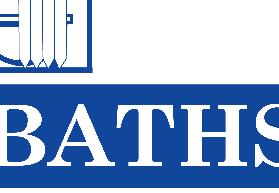












Guest Perspective
Elayne Clift
It’s happening slowly, but the consequences will be stunning. From pre-school to elementary and high school to higher education, we stand to lose generations of youth and emerging adults who will have been denied their right to accessible, quality education that fosters critical thinking, higher learning and skills that will allow them to be valuable members of society no matter what they choose to undertake as adults in the workforce.
They may want to be tradespeople, future teachers, scientists, healthcare professionals, policymakers, business owners and more, but no matter what level they have achieved in school during the Trump administration their educational growth will not be met without a Department of Education. Their futures (and ours) will be compromised and stifled by the myopic, unformed policies promulgated by ignorant sycophants who don’t value education or expertise and fail to understand the importance of quality educated
MORRISON
continued from page 6
proportionate consequences.
• Fair treatment for adults: Repealing policies like “raise the age” reaffirms that adults must be held to the full standards of accountability under our laws.
• Balanced intervention: Ending “catch-and-release” practices and improving access to recovery and mental health services at critical intervention points ensure that our measures are both just and effective. These reforms are essential at a time when Vermont is facing rising drug trafficking, increased violent crime and the resultant uptick in gun violence and homicides. When serious offenders perceive our state as a soft target, our communities bear the cost — and that must stop. At the heart of these reforms lies our shared social contract. This contract is the unspoken agreement that binds us as Vermonters. It represents our mutual commitment to support one another, hold each other accountable and ensure that our rights come with responsibilities. It promises that our communities will be safe havens where every individual — whether a resident, a visitor, or someone seeking help — can thrive.
citizens if a nation is to thrive.
What we are facing is a frontal assault on excellence in education that will have higher social costs than we can imagine. We will have forfeited the “American exceptionalism” that many of us like to claim because curiosity and creativity will be absent from curricula.
Right wing authoritarianism, coupled with sheer stupidity, will mean no more excellent faculty at every level who leave the profession because they fear what they say, write or say will be cause for dismissal. No longer will there be truthful historical context, great literature and Socratic challenges upon which to build. The truths we tell our children and the ways we help them develop as competent, caring adults will disappear. Bullying will grow bigger while brains shrink, along with our values, compassion and sensitivity toward others because they are things we also learn in school.
Consider what an education department does. It manages over a trillion dollars of student loan debt and oversees the Pell Grant that provides aid to students below a certain income. It also administers student aid, which enables universities to offer financial aid. Its Office for Civil Rights conducts investigations and issues guidance on how civil rights laws should be
who contribute enormously to research and innovation in all fields.
Universities have always been the reservoirs of knowledge, discourse, increased insight and realized aspirations. Now, they aren’t playing that role because they are being silenced, made fearful and irrelevant, while bowing to power.
applied and tracks a database that shows disparities in resources, course access, and discipline for students of color and lower socioeconomic groups.
But the Trump administration has instructed the office to prioritize complaints of antisemitism and has opened investigations that relate to transgender rights. Much of the department’s money for K-12 schools is allocated to large federal programs for low-income schools and disabled individuals.
Our proposed measures aim to renew that contract. They are not merely punitive steps but a balanced response that combines accountability with compassion, enforcement with opportunities for rehabilitation.
By reaffirming our commitment to the social contract, we are pledging to safeguard our parks, neighborhoods and downtowns, not only as spaces of economic opportunity but as symbols of our collective trust and responsibility. When every individual knows their actions have consequences and our community will stand by those in need, we create a foundation for a safer, healthier and more vibrant Vermont.
We owe Vermonters our best efforts to uphold this promise. By enacting these measures, we can recalibrate our approach to public safety and renew the social contract that underpins our shared quality of life. Together, let’s create a Vermont where every corner of our state reflects the security, respect and opportunity we all deserve.
Jennifer Morrison is commissioner of the Vermont Department of Public Safety.
The withdrawal of grants and contracts normally provided to places of higher learning, along with targeting schools over antisemitism and diversity initiatives, is why so many colleges and university have stopped student organizations and pro-Palestinian protests and have started violating First Amendment rights of free speech and peaceful assembly. It’s sickening to see places that were once revered as bastions of growth, academic distinction, personal achievement and logical thinking fold. Universities have always been the reservoirs of knowledge, discourse, increased insight and realized aspirations. Now, they aren’t playing that role because they are being silenced, made fearful and irrelevant, while bowing to power instead of upholding principles that were formerly embraced as guides to learning since the days of ancient places of learning.
The Trump administration has also slashed funding that colleges and universities depend on, including grants and contracts that support research being conducted in these venues. These cuts result in researchers being fired and fewer Ph.D. students being accepted at colleges and universities. This impacts highly motivated and competent immigrants who want to advance their scientific training in the United States and
At lower levels of education, teachers’ responses to what is happening as a result of the administration’s attitude toward the closing of the Department of Education are telling. In a survey by “PBS News Hour” in February, respondents made clear what’s at stake.
They are worried about the elimination of special education and disability services because of teacher cuts or resignations which will result in larger
classes and no accommodation for various learning needs. Rural schools will be among the hardest hit schools. Many will close or consolidate, and teachers will likely be less qualified.
One respondent noted that “the loss of DOE will be predominantly felt in all our programs designed to help economically disadvantaged students and families…it will be like going back in time to the 1960s, when children with learning differences and challenging behaviors were not entitled to an education at all.” Funding for computers, lab equipment and other learning tools will not be funded, nor will technical and training support for teachers exist. Graduate programs will end.
Linda McMahon, who has no relevant credentials to bring to bring to her job as head of the Education Department, as long as it lasts, has called her “final mission” the elimination of what she sees as bureaucratic bloat. She wants to turn the agency’s authority to the states, and we all know how block grants turned out — if you lived in some states, you were definitely screwed. While the elimination of the department requires an act of Congress, the show of ring-kissing at the State of the Union speech made clear that the department is in very deep trouble.
It doesn’t take much imagination to understand what’s at stake here, whether you are a student, a parent, an educator, a policymaker or a sensible, compassionate human being. We cannot let this stand. Make sure your legislators know that.
Elayne Clift writes from Brattleboro.

Buying and shopping locally helps independent businesses, which in turn helps all of us shape our community’s distinct flavor, personality and character.


Safety Team teaches risk-mitigation techniques
April is Sexual Assault Awareness Month, and The Safety Team, a Vermont-based nonprofit providing violence prevention and trauma recovery programs, will host “Fostering Safety in an Unsafe World,” a free interactive presentation, on Monday, April 14, at 6 p.m. at the Mainstreet Landing Performing Arts Center Film House, 60 Lake St., Burlington.
The event will include a presentation, a video and easy-tolearn strategies and techniques. A live demonstration by The Safety Team — all trained martial artists, many with black belts and beyond — will be followed by a Q&A session. Participants will receive a handout with strategies to prevent violence and bullying.
Registration is encouraged but not required. Register at forms.gle/ hCmhob6CtX7BaiGBA
According to the National Sexual Violence Resource Center, an American is sexually assaulted every 68 seconds. Vermont’s 2021 Youth Risk Behavior Survey found that almost 40 percent of high school female students in the state have experienced unwanted sexual contact — a rate four times higher than that reported by male students.
“Once you are equipped with knowledge, greater awareness of risks and a few simple physical skills, you can practice boundary setting while claiming your voice
and healing from trauma,” said Christine DiBlasio, founder of The Safety Team, a psychologist with 30 years of experience and a fifth-degree black belt. “There is nothing more gratifying than witnessing powerful healing and transformation.”
Founded 20 years ago by DiBlasio and a group of advanced female martial artists and professionals, The Safety Team has conducted hundreds of workshops and helped thousands of women and girls. For more information, contact Genie Henry at genie@ thesafetyteam.org or 802-9859551.
Here’s what Shelburne Parks and Recreation has coming up for activities.
• Davis Park Community Gardens: Located next to the Natural Playground at Davis Park on School Street, these are raisedbed gardens designed to provide better accessibility for those who may need it. The plots are much smaller than those at LaPlatte. Water is available on-site. Gardening is organic only — no pesticide or chemical use.
Applications are now being accepted at the recreation office. Plots will be assigned in early April, with planting starting in early May. Priority will be given to those who have accessibility needs

Shelburne Community School recently celebrated a successful Readathon with over 177,000 minutes read, 35,000
year. The middle-level class that read the most won the opportunity to duct tape principal Brett Cluff to a wall.
until March 31.
Plot costs are $20 for an 8-by-3-foot, 30-inch-high bed; and $25 for an 8-by-4-foot, 24-inchhigh bed.
• Group Swim Lesson Program: In a new offering, the department partners with the Edge Sports & Fitness to offer preschool
and learn-to-swim lessons. The pool is located at 75 Eastwood Drive in South Burlington and is 81 degrees. A parent or guardian must accompany the child for the in-water lessons.
May session dates: Sundays, May 4, 11, 18. Cost (three lessons): $70 resident, $80 nonresident. Registration deadline: April 25. June and July session dates
than
coming soon. Register through Shelburne Parks and Recreation.
• Summer Camp spotlight on Ultimate Frisbee camp: Whether your child is a beginner or knows about Ultimate Frisbee, this camp will help stretch their skills and provide the perfect environment









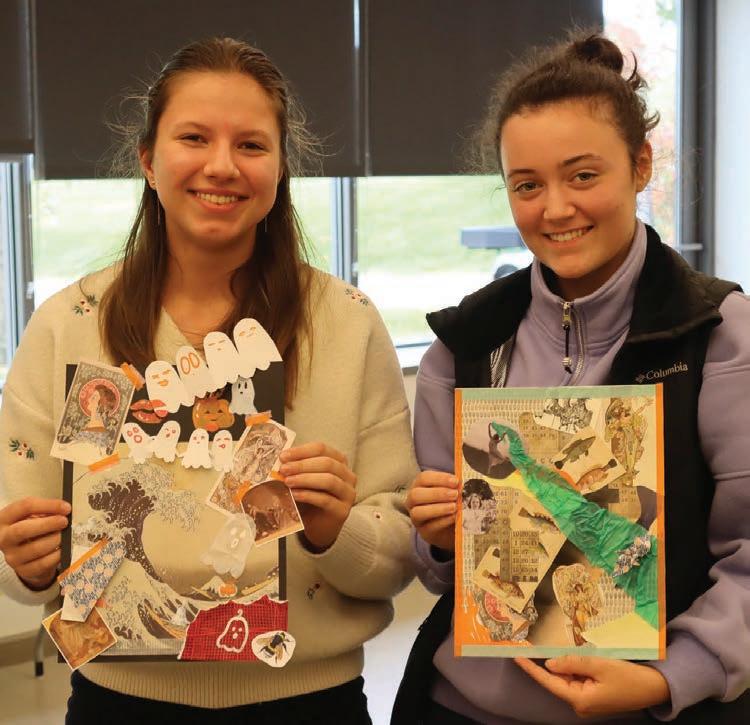
Creativity Lab III — a unique program designed exclusively for teens who love art and imagination! August 11-15. Register Today!



COMMUNITY NOTES continued from page 8
to learn, grow, and have a blast. Over the week, participants will work on catching, throwing, strategy, knowledge of the game and speed, and of course, play a lot of Ultimate. Campers will get to take home a disc and a T-shirt. Minimum of 12 and maximum of 30 participants.
Registration deadline: June 30, 2025. Dates: July 21-25, 9 a.m.-12 p.m. Cost: $175. Ages: 10-15 years old. Location: Shelburne Athletic Fields, 166 Athletic Drive
Check out all our summer camps, youth and adult classes, and upcoming special events on our website at http://www.shelburnevt.org/160/Parks-Recreation. Questions? Please contact our office at 802-9859551.
CVU hosts climate action plan talk
Don’t miss your chance to weigh in on the 2025 update to Vermont’s Climate Action Plan at Champlain Valley Union High School on April 15 at 6 p.m.
Climate council members will listen and consider public input when revising the plan, which is due July 1. Background materials will be emailed a few days before the meeting. Refreshments provided. Register at climatechange.vermont.gov/ climate-action-plan-2025-update
Joe Cruz, a bicycle traveler, writer, photographer, and chair of the philosophy department at Williams College, will be at the Champlain College Alumni Auditorium, 375 Maple St., Burlington, on April 18 at 7:30 p.m. for an evening of tales from his past journeys. Come to be inspired, experience adventure, and dream about big bike rides.
The event is free to attend but you are asked to RSVP to reserve a seat. A virtual option is available for those wishing to attend from out of town, state, or country.
Cruz took his first bikepacking trip in 1988 and has since cycled the world, aiming to meet people, find stories, and experience cultures and history. He and his wife split their time between southern Vermont and New York City.
To register or receive the virtual meeting link, visit tinyurl.com/2mv2svwkVenue.
The Lyric Theatre Company presents Disney’s “The Little Mermaid” at the Burl-

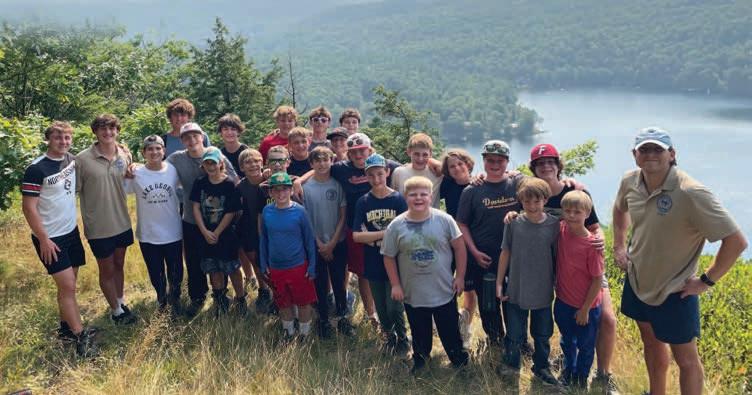
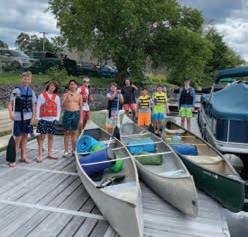

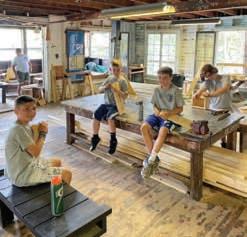
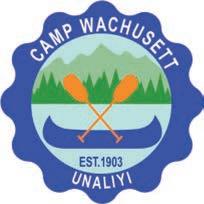


GILWEE
continued from page 1
Gilwee scored 13 points for the No. 15-seeded University of Vermont in a 75-55 loss to No. 2 North Carolina State, a defeat that in many ways still felt like a win for the program.
While the tournament’s other No. 15 seeds were losing by nearly 70 points, the Catamounts hung with Wolfpack — trailing by just 2 points at halftime.
Eventually, the tournament’s seeding was proven true as UVM ran out of gas and N.C. State’s talented roster pulled away. But the three quarters of tight basketball has reentered the Catamounts into the national conversation and Gilwee was front-and-center in that effort.
“I was just really proud that we came out with that chip on our shoulder and not just backing down to them because they were N.C. State and we’re Vermont,” Gilwee said. “I was super proud of our performance. We stuck with them for the first three quarters, and no one expected us to do that.”
Gilwee played at Champlain Valley Union High School for four seasons, helping lead the Redhawks to a 30-0 record in her final two seasons. She was named the Gatorade high school girls basketball player of the year in 2021 and the Burlington’s Free Press’ Miss Basketball.
Gilwee had no expectations entering UVM and the women’s basketball program. But the 5’8” guard played in all the Catamounts’ games in her freshman and sophomore years, averaging 10 points her second season and earning a spot in the NCAA tournament.
“If you were to ask me when I was coming into UVM what I saw my four years looking like, I definitely didn’t think my freshman year would’ve gone as well as it did,” Gilwee said. “All the years since then, I think it’s been even better than I could have imagined.”
The team’s 2023 tournament performance helped them coming into this year, Gilwee said. The Catamounts were able to take away lessons from the loss to Connecticut two years ago that they took into their matchup against the Wolfpack.
“We came out with a little bit more confidence this year,” she said. “It wasn’t as much of a shock walking into this game as it was two years ago when we played UConn.”
After missing her junior year to injury, Gilwee came back strong this season and helped lead the Catamounts to a resurgent season. The program posted a 21-13 record, won the America East title and garnered national notice for their tournament

performance last weekend. All of that felt like a step forward for a program on the rise.
“What was exciting was I know that we didn’t play our best game,” Gilwee said of the team’s loss to NC State. “It’s not like we played a perfect game, and we lost. We didn’t even play
a perfect game and, if we had, we could have won that game. It’s super helpful for the future and just continuing to grow and learn how to be locked in and just limiting our mistakes.
“I think as long as everyone has the same mindset and is on the same page, we could accom-
plish a lot in the future.”
Through it all, Gilwee has had local fans cheering her on, from the Redhawks fans who watched her develop as a CVU player on the court to the local kids who she gets to mentor in the same way former UVM players did for her.
“It was just awesome to see how much support we have and just how many people really care about the UVM program,” Gilwee said. “I just love how it’s such a tight-knit community and I love how everyone supports everyone and all those people reaching out means so much to me.”
Here’s what’s coming up at the Pierson Library, 5376 Shelburne Road, Shelburne.
• Public Philosophy Week: The Ethics of Housing, Thursday, April 3, 6:30 p.m. Join Mike Ashooh for a community discussion on the ethics of housing. Is housing a human right, a commodity, or both? How can we make housing more accessible?
• Multicultural Movie Night, Friday, April 4, 5:30-7:30 p.m. Join for a family-friendly adventure movie, followed by pizza and popcorn. This event is brought to you in partnership with the Town of Shelburne’s Equity & Diversity Committee. Rated PG.
• Spring Garden Clean-Up at Pierson Library, Saturday, April 5, 9-11 a.m. Help prepare the library gardens for spring. Bring your garden tools and join University of Vermont master gardener Steve Budington for a fun community workday.
• Pierson Library & Flying Pig Bookstore present author Kari Percival, Saturday, April 5, 10:30-11:30 a.m. Celebrate the release of “Safe Crossing” with author Kari Percival and Chris Slesar. Learn how to help amphibians safely cross roads this spring.
• Creative Writing Support
Group, Saturday, April 5, 1-3 p.m. Whether you write poems, stories, or scripts, this group is for anyone wanting support and a space to share their work. New members are always welcome.
• Public Philosophy Week presents “The Tao of Ethics,” Saturday, April 5, 4-5 p.m. Join Shelburne’s Chad Hansen for a discussion on Taoist ethics, an intuitive, nature-based morality.
• Pop-Up Book Club feature “Escaping the Housing Trap,” Monday, April 7, 6-7 p.m. Join us for a discussion of “Escaping the Housing Trap” by Chuck Marohn and Daniel Herriges. This book explores solutions to the housing crisis, focusing on local, neighborhood-level changes.
• Coffee and conversation about memories, Tuesday, April 8, 10:30-11:30 a.m. Join us for a casual conversation about memories. Share personal stories and reflect on important moments from your life.
• Poetry Reading with Kristen Dykstra
Thursday, April 10, 7-8 p.m. Celebrate National Poetry Month with poet Kristen Dykstra. Hear selections from her latest book, Dissonance, and learn about her work translating contemporary Cuban poetry.
























CARLY BERLIN VTDIGGER







Gov. Phil Scott took executive action last week to extend motel voucher stays for unhoused families with children and certain people with acute medical needs through June 30.
Without the extension, this group of unhoused Vermonters would have faced a cliff next Tues-


day, when the voucher program’s loosened winter rules will expire for the season. Democratic legislators had sought a three-month extension for all people sheltered through the program, a move Scott and fellow Republicans fiercely opposed.
Scott’s order came down just hours after Senate Republicans blocked an attempt to advance a bill that would have provided an exten-
sion for all 2,300 people currently receiving motel vouchers. The blockage essentially ensured that all unhoused people in the program would be subject to strict time-limits on their stays beginning on April 1.
“While I’ve been opposed to the Hotel Motel program because it
See MOTEL on page 16



• View a complete online copy of the print edition
• Read the latest news
• Find out about sales and events
• Stay up to date on local happenings VTCNG.com/ShelburneNews/digital_edition
Sign up for our Friday EMAIL NEWSLETTER
Headlines and news sent directly to your inbox every Friday at 10 a.m.
Sign in and add your weekly newsletter: VTCNG.com/users/admin/mailinglist

continued from page 3
Newspaper Group also took home a passel of second- and third-place newsroom and production awards. That includes a second-place Best Niche Publication finish for Greg Popa and the Stowe Guide, perennial award winners in that category. And it includes a third place for the Stowe Reporter team in the Advertising General Excellence category:
On the reporting side:
• News Feature Photo, second place: Miller, for Morrisville’s Memorial Day parade in the News & Citizen
• Arts & Entertainment
Reporting, second place: Avalon Styles-Ashley, for “Sculpted,” in the Stowe Guide
• Human Interest Feature Story, second place: Gardner, for “Stowe teens train as fire fighters” (Stowe Reporter, Dec. 7, 2023)
• General News Story, third place: Calvin, for “Awe, romance and traffic mark Stowe eclipse”
(Stowe Reporter, April 11, 2024)
• Local Personality Profile, second place: Gardner, for “Surf’s Up,” in the Stowe Guide
• Climate Change or Weather
Reporting, second place: Calvin and Gardner, for “Widespread flooding déjà vu for Lamoille County” (News & Citizen, Dec. 21, 2023)
• Local Personality profile, third place: Darr, for “Chittenden County forester taps into new path” (The Other Paper, May 16, 2024)
• Obituaries, third place: Gardner, for “Friends, colleagues remember smilin’ Brian Kellogg” (News & Citizen, Oct. 12, 2023)
• Obituaries, third place: Gardner, for “JB McKinley finishes his last Page,” Stowe Guide
• Sports Story, third place: Styles-Ashley, for “SprigSlog,” Stowe Guide.
For production and design:
• Local Display Ad, black and white, second place: Werth, for
Stowe Family Dentistry, Stowe Reporter
• Local Display Ad, black and white, second place: Braley, for Stowe Family Dentistry, News & Citizen
• Real Estate Display Ad, second place: Braley, for Gerry R. Real Estate, The Other Paper
• Best Holiday Ad, second place: Braley, for Denton Auto, News & Citizen
• Overall Design and Presentation of a Special Section, third place: Stowe Reporter team, for RIDE 2024
• Local Display Ad, color, third place: Werth, for “Coming Together,” News & Citizen
• Local Display Ad, color, third place: Braley, for Stowe Communication, Stowe Reporter
• Illustration/Infographics, third place: Werth, for the RIDE supplement’s map of trails and advertisers
continued from page 1
communications services delivered across the state.”
Shelburne’s dispatch center is unique and already operates on a slightly regionalized scale, serving 32 different communities with nine full-time dispatchers. But the growth has come about organically, Mack said, arguing that regionalization in that way can oftentimes create better outcomes.
“Consolidation is good when it works for both sides,” Mack said. “A neighboring town says, ‘Oh, we need dispatching services.’ Well, here’s what we will do for you and here’s what it will cost for you. They come in willingly and we’ve had far fewer problems that way. When you force an agency in here, there’s a lot of problems.”
Past regionalization efforts in Chittenden County have fizzled. For example, the Chittenden County Public Safety Authority in 2018 began moving toward its own regional dispatching model in seven communities — Burlington,
continued from page 9
ington’s Flynn Theater.
Performances run April 10-13, with matinees on Saturday and Sunday at 1 p.m., evening performances Thursday through Saturday at 7:30 p.m., and a final performance Sunday at 6 p.m. Saturday’s evening performance will feature American Sign Language translation for the
Colchester, Milton, South Burlington, Williston and Winooski — but by 2023, the effort appeared to have stalled after Colchester pulled out of the deal and failed to authorize the annual funding for the municipal entity that year. Milton also started contracting with St. Albans to provide those services.
Even further back — roughly 30 years ago — the Vision 2000 committee funded through a grant procured by former Senator Patrick Leahy was similarly studying public safety consolidation.
Steve Locke, South Burlington’s deputy city manager, fire chief and board chair of the public safety authority, said the recent pause reflected the tug-of war between two problems: maintaining their own municipal dispatch centers while simultaneously attempting to generate the capital costs for a regional center.
“You’re having to build a new center with new resources at the
same time that you’re keeping existing operations going,” Locke said. “And most of the centers are struggling to provide two dispatchers on 24/7 or the staffing levels that you would desire.”
Not to mention the COVID-19 pandemic that stopped just about everyone in their tracks. New efforts and projects took a backseat as municipalities grappled with leaner budgets, displaced funding models and problems never before seen.
Shelburne, unlike some of its neighbors, voted against joining the authority because the town was essentially “already doing it,” Mack said. Ultimately, he said, it would not have been a massive cost-saving effort for the town.
South Burlington, on the other hand, bolstered its own dispatch center in 2024 with American Rescue Plan Act funds, surplus dollars and grant-funded equipment originally intended for the regional project, to invest in the
new technology and a seventh dispatch employee in-house.
Mack doesn’t anticipate any substantial movement due to the draft report right away, since a slew of questions remain, like how a regionalized effort could be funded with help from state dollars or if those six centers in the report even want to take on more territory. He does foresee this potentially getting the Chittenden County Regional Authority to pick up the pace again.
“What’s in the report, I think, is a starting point for us to have discussions, not an end point,” he said.
Locke said South Burlington remains open to regionalization efforts, especially since the authority wasn’t officially disbanded and is likely to meet in the coming months to discuss the report.
“If there comes something out of this report that indicates there’s still a willingness to move in that direction, then that authority still
is in play and could be the governing body for a regional center,” Locke said.
Seeking a part-time year round caretaker in Shelburne.
Responsibilities include maintaining security, building and property maintenance oversight, and other maintenance support for owners of a property on Lake Champlain. One to two days a week depending on seasonal and work demands. Provide resume and/or statement of relevant experience and skills along with contact information to PO Box 129 Shelburne, Vermont 05482. Starting date is late May/early June.
hearing impaired, and the Sunday matinee will be audio-described for patrons who are blind or visually impaired.
Tickets range from $20–$55, with student and senior rates available.
Based on one of Hans Christian Andersen’s most beloved stories and the classic animated film,
with music by eight-time Academy Award winner Alan Menken, lyrics by Howard Ashman and Glenn Slater, and a compelling book by Doug Wright, this fishy fable will capture your heart with its irresistible songs, including “Under the Sea,” “Kiss the Girl,” and “Part of Your World.”
Organic grain and sheep farm on Lake Champlain in Shelburne is looking for a May-November, Monday-Friday, daytime lawncare worker. $22-25/hour for mowing, trimming, other maintenance tasks. Work boots, rain gear and all protective gear provided. Small crew, fun and safe place to work. For more information and application, email: info@meachcovefarms.org.








The week-long bait drop is a coopera-
Rabies
but unvaccinated pets and livestock can also get rabies.The virus is spread through the bite of an infected animal or contact with its RABIES
and





saliva. If left untreated, rabies is almost always fatal in humans and animals. However, treatment with the rabies vaccine is nearly 100 percent effective when given soon after a person is bitten by a rabid animal.
So far this year, 23 animals in Vermont have tested positive for rabies, and 14 of those have been raccoons.
According to wildlife officials, rabid animals often show a change in their normal behavior, but you cannot tell whether an animal has rabies simply by looking at it. People should not touch or pick up wild animals or strays – even baby animals.










continued from page 12
doesn’t serve those in the program well, I have also been clear that we have an obligation to protect children and Vermonters who are most vulnerable,” Scott said in a statement last Friday. “This executive order does just that without unwinding the important progress we’ve made.”
The extension will apply to just over 400 households, according to Amanda Wheeler, Scott’s press secretary. State data shows 1,439 households are currently sheltered through the program.
Those eligible for the extension are families with a child under the age of 19, and “medically vulnera-
ble” individuals. The order defines “medically vulnerable” as being “homebound”; requiring a lifesaving device that needs access to electricity, like an oxygen concentrator; in active treatment for cancer, “severe kidney/renal disease, or severe liver or heart conditions”; receiving Medicaid or Medicare-eligible “home-based” nursing services; or women in their third trimester of pregnancy. This eligibility criteria leaves out a broad swath of people currently eligible for the emergency housing benefit, including Vermonters over the age of 65, people fleeing domestic violence, people displaced

Do you have spring planting or digging projects?
by flooding, and more.
That means those individuals will still be subject to restrictions on the motel program come April 1: an 80-day allotment on motel stays, along with a 1,100-room cap on the program. Many people housed in motels already used up their 80-day limit for the fiscal year last fall, which resulted in a mass wave of evictions from motels between September and December. (The restrictions were eased for the winter months.)
In the fall, some families with young children leaving the motels ended up pitching tents. That prompted considerable public
outcry, including from some legislators who had agreed to the new restrictions last year as a way to scale back the motel program’s pandemic era expansion. Service providers and advocates demanded Scott take executive action, but at the time, he declined to do so.
Last week’s order came after weeks of heated exchanges between Scott and Democratic leaders in the Legislature over the immediate future of the motel voucher program, tied to an annual budget adjustment bill.
“What we did was to
fiercely opposed the full extension, arguing that the voucher program is a “failure” that has “warehoused” people instead of helping them. Still, Scott brought forward a counterproposal to Democrats last week, offering to grant voucher extensions for families with kids and people with severe medical needs.
try to stay steadfast behind the idea that nobody should be exited.”
— Sen. Phil Baruth
Scott vetoed lawmakers’ first attempt at the legislation two weeks ago, citing concerns about increased spending — along with his disapproval of the three-month voucher extension.
Democratic leaders in the House and Senate conceded to Scott’s spending asks but held firm in their position to extend eligibility for the voucher program through June 30, proposing to do so with existing state funds.
Scott and Republican legislators
continued from page 2
If you plan to do any type of digging on your property, you or your contractor must contact Dig Safe™ at 811at least 48 hours prior to digging.
Dig Safe will notify member utilities, who will locate of buried facilities they own and ensure they are clearly marked. If you plan to work within 18 inches of the marked lines, please make sure it is dug by hand.
Smell: Natural gas is normally odorless. VGS adds an odorant similar to the smell of rotten eggs, so it can be easily recognized.
Sight: You may see a white cloud, mist, fog, bubbles in standing water, or blowing dust. You may also see vegetation that appears to be dead or dying.
Sound: It may result in an unusual noise that replicates the sound of roaring, hissing, or whistling.
Move immediately to a safe location. Call VGS at 800639-8081 or call 911 with the exact location. Do not smoke or operate electrical switches or appliances. These items may produce a spark that might result in a dangerous condition. Do not assume someone else will report the condition.
Scan the QR Code or visit vgsvt.com/be-safe for more safety information.





a program in which para-educators walk over from the community school with children who struggle in traditional classrooms, a relationship with the Lake Champlain Waldorf School, and a summer program that hosts 60 children. They were recently awarded a $15,000 grant to support their partnership with Shelburne Community School
“It’s kind of lunacy to farm here, but it serves a purpose,” Ryan said. “We’re in walking distance of two schools.”
The development rights to the land that New Village is on are owned by Vermont Land Trust. Only agricultural development can happen there, which means, in general, things like barns or stables are allowed, but housing is not.
However, according to town planner Aaron DeNamur, there are no current town zoning restrictions that would prevent Ryan from building the infrastructure she is considering — depending on whether the selectboard agrees to extend the sewer district.
“Because of the Agency of Agriculture exemptions, they have a lot of protections for uses that are accessory to the to the actual farming that’s going on,” DeNamur said.
According to state law, a munic-
Democrats declined to take up the offer, in a refusal to carve out exceptions among a broadly vulnerable group.
“What we did was to try to stay steadfast behind the idea that nobody should be exited,” said Senate President Pro-Tem Phil Baruth, D/P-Chittenden Central, in an interview last Friday before the order came down. “I think very few people in that program do not have major challenges.”
This story, by Report for America corps member Carly Berlin, was produced through a partnership between VTDigger and Vermont Public.
ipality’s bylaws cannot prohibit “accessory on-farm business,” which includes educational activities related to farming and agriculture. This includes tours, tastings, classes and overnight farm stays. It would also, presumably, include bathrooms for students to use when on the farm for educational programming all day.
“We have kids who call their parents to pick them up if they have to use the bathroom,” Ryan said.
She has also been bringing all the glass bottles and farm laundry back to her house to wash them. Her home is on town sewer.
Although Ryan’s ideas for her property are unlikely to violate any zoning laws or overwhelm the sewer system, she is asking to connect to it at a time when tensions are high over farm runoff’s impact on water quality. However, Shelburne Farms, down the road from New Village, has sewer system access on parts of their property. According to DeNamur, it’s for similar uses as what Ryan is proposing such as bathrooms and kitchens.
The selectboard, however, was hesitant.
“I’m not ready to make any kind of decision today,” selectboard member Luce Hillman said.